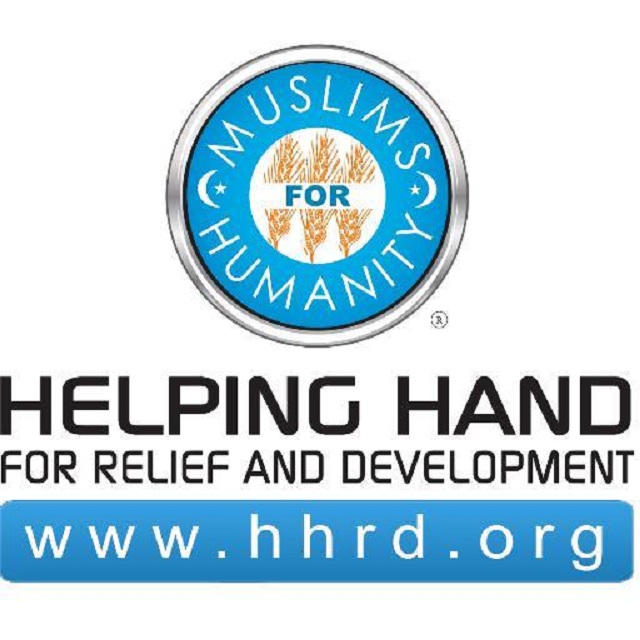Jaipur, India – February 24, 2025 – In the ever-evolving digital world, staying ahead requires more than just theoretical knowledge—it demands hands-on expertise, strategic execution, and real-world application. Recognizing this need, DigiRoads has emerged as a leading force in digital marketing education, offering cutting-edge training programs designed to equip learners with industry-driven skills. Whether you are an aspiring marketer, a business professional, or an entrepreneur, DigiRoads empowers individuals to master digital marketing strategies that drive tangible success.
DigiRoads: Where Learning Meets Real-World Implementation
With the rapid expansion of the digital economy, the demand for skilled digital marketers has skyrocketed. Companies are constantly looking for professionals who can optimize campaigns, analyze data, and execute marketing strategies effectively. DigiRoads was founded with a mission to bridge the gap between conventional education and real-world application, ensuring students not only understand marketing concepts but also implement them through practical training and live projects.
From Humble Beginnings to a Digital Powerhouse
Laying the Foundation: Building Expertise & Delivering Results
DigiRoads was founded in 2015 by two visionary BITS Pilani alumni, who sought to revolutionize digital marketing education. The early years were focused on helping businesses enhance their digital presence through SEO, PPC, and social media marketing.
During this period, DigiRoads achieved:
- SEO Excellence: Ranked over 200+ websites on the first page of Google, boosting organic traffic for businesses across industries.
- PPC Mastery: Created high-performing ad campaigns that tripled ROI for startups and established enterprises.
- Social Media Growth: Launched viral marketing campaigns that increased audience engagement by 150%.
These achievements positioned DigiRoads as a trusted digital marketing partner for businesses seeking data-driven strategies and measurable growth.
The Rise of DigiRoads Classes
As the demand for skilled digital marketers surged, DigiRoads took a significant step in 2023 by launching DigiRoads Classes, a career-focused training institute designed to provide hands-on learning experiences. Unlike traditional training programs that focus only on theory, DigiRoads Classes ensures students actively implement strategies on live projects, preparing them for real-world marketing challenges. The institute offers specialized courses, including SEO Course, PPC Course, Social Media Marketing Course, Performance Marketing, Content Marketing, and Web Analytics. Each program is tailored to industry standards, equipping students with the most in-demand skills.
Since its inception, DigiRoads Classes has successfully trained over 500+ students, many of whom have secured high-paying jobs, internships, or started their own digital marketing agencies. The impact of the courses extends beyond professional growth—students experience enhanced critical thinking, analytical skills, and creative problem-solving abilities. The positive side effects include improved confidence, strategic mindset development, and the ability to adapt to fast-changing digital trends. With expert mentorship, industry-recognized certifications, and job placement assistance, DigiRoads Classes continues to be the top choice for digital marketing aspirants looking to excel in this competitive field.
Shaping Careers with Industry-Driven Projects
DigiRoads has transformed businesses while providing students with the best digital marketing course in Jaipur for real-world marketing exposure. Some of its most impactful projects include:
1. E-Commerce Brand Success
- Boosted website traffic by 400% within six months using SEO and targeted PPC campaigns.
- Increased online sales fivefold through performance-driven marketing strategies.
2. Real Estate Digital Expansion
- Designed a lead-generation strategy for a real estate firm, resulting in a 200% increase in customer inquiries.
- Leveraged Facebook & Google Ads to drive high-intent leads and improve retention rates.
3. Healthcare Digital Growth
- Developed an SEO-driven content strategy that ranked a healthcare startup in the top three search results for competitive keywords.
- Achieved a 60% increase in patient bookings through advanced digital advertising.
Key Achievements
 80%+ job placement rate for DigiRoads Classes students.
80%+ job placement rate for DigiRoads Classes students.
 Trained 500+ professionals, equipping them with real-world marketing expertise.
Trained 500+ professionals, equipping them with real-world marketing expertise.
 Helped businesses generate 2+ million organic visitors through advanced SEO.
Helped businesses generate 2+ million organic visitors through advanced SEO.
 Executed social media ad campaigns that reached millions of users, significantly boosting brand engagement.
Executed social media ad campaigns that reached millions of users, significantly boosting brand engagement.
Why Choose DigiRoads?
Unlike traditional training programs, DigiRoads focuses on real-world execution. Students don’t just study digital marketing—they apply it through live projects, hands-on mentorship, and performance-driven learning.
What Sets Us Apart?
 Live Digital Marketing Projects – Gain direct experience running SEO, PPC, and social media campaigns.
Live Digital Marketing Projects – Gain direct experience running SEO, PPC, and social media campaigns.
 Industry-Curated Curriculum – Learn from seasoned marketing experts who bring the latest industry insights.
Industry-Curated Curriculum – Learn from seasoned marketing experts who bring the latest industry insights.
 Expert Mentorship & Personalized Training – One-on-one guidance from professionals with years of practical experience.
Expert Mentorship & Personalized Training – One-on-one guidance from professionals with years of practical experience.
 Internship & Placement Support – Strong industry connections that help students secure internships and job placements.
Internship & Placement Support – Strong industry connections that help students secure internships and job placements.
 Industry-Recognized Certifications – Boost career credibility with certifications that employers value.
Industry-Recognized Certifications – Boost career credibility with certifications that employers value.
DigiRoads is committed to producing skilled digital marketers who can excel in the competitive job market. Our structured digital marketing course in Jaipur ensures learners develop a strong foundation in SEO, PPC, content marketing, web analytics, and more.
Start Your Digital Marketing Journey Today!
Whether you are looking to start a career in digital marketing, upgrade your skills, or enhance your business’s online presence, DigiRoads offers the best digital marketing course in Jaipur tailored to industry demands.
At DigiRoads, we don’t just teach marketing—we help you implement strategies that drive real results. Join us and take the next step towards becoming a digital marketing expert.
Visit www.digiroadsclasses.in or email us at info@digiroadsclasses.in for inquiries. Call us at +91-8971129995.

 Entertainment4 weeks ago
Entertainment4 weeks ago
 Entertainment4 weeks ago
Entertainment4 weeks ago
 Entertainment4 weeks ago
Entertainment4 weeks ago
 Entertainment3 weeks ago
Entertainment3 weeks ago
 Entertainment2 weeks ago
Entertainment2 weeks ago
 Entertainment1 week ago
Entertainment1 week ago
 Entertainment1 week ago
Entertainment1 week ago
 Entertainment1 week ago
Entertainment1 week ago




 80%+ job placement rate for DigiRoads Classes students.
80%+ job placement rate for DigiRoads Classes students. Live Digital Marketing Projects – Gain direct experience running SEO, PPC, and social media campaigns.
Live Digital Marketing Projects – Gain direct experience running SEO, PPC, and social media campaigns.